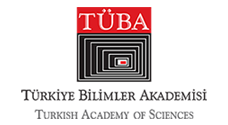Global Transformation of Peacekeeping Operations and Türkiye’s Contributions
Global Transformation of Peacekeeping Operations and Türkiye’s Contributions
Stating its purpose as “to maintain international peace and security”, the United Nations (UN) has been given the powers of taking collective measures against threats to or breaches of international peace and security by its Charter. One of these measures is the Peacekeeping Operations (PKOs). Although there are no provisions regarding the PKOs in the UN Charter, they have a long history, going back to the UN Military Observers in the Middle East in 1948. UN Secretary-General Dag Hammarskjöld, then in 1958, provided an adaptable framework for future PKOs. In line with this framework, the PKOs have been re-interpreted many times due to the changing international conjuncture and the changing nature of conflicts, and thus, the very nature of the PKOs has transformed in the last 75 years. Participating in the efforts of maintaining international peace and security under the flag of the UN for the first time in the Korean War of 1950, Türkiye has been consistently contributing to the PKOs. Türkiye considers PKOs as the legitimate means to realize one of its main foreign policy objectives, which is “to contribute to establish and maintain peace and stability in its region and beyond”, and thus provides both personnel and financial support. Since the PKOs have transformed, so have the contributions of Türkiye. This paper will consist of two parts. The first part will dwell on the transformation of the PKOs by dividing them into three generations. The structures and mandates of each generation are to be analyzed comparatively to establish the common characteristics of each generation. The second part will evaluate Türkiye’s contributions to the ever-transforming PKOs. The changing contributions of Türkiye to the different generations of PKOs are to be evaluated to find a common pattern. Drawing on the conceptual framework of the English School (International Society Approach), this paper will track down the transformation of the PKOs and Türkiye’s contribution to PKOs accordingly. Utilizing the UN Security Council (UNSC) resolutions, UN reports, and UN Department of Peace Operations (UNDPO) datasets as the primary resources, the paper uses the comparative analysis methodology to analyze the transformation of PKOs and Türkiye’s contributions. The paper concludes that Türkiye’s contributions are consistent with the general trajectory of the PKOs.
Click to cite.
Note: You can access the citation text via the ‘Actions’ tab in Crossref.
